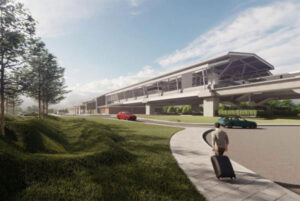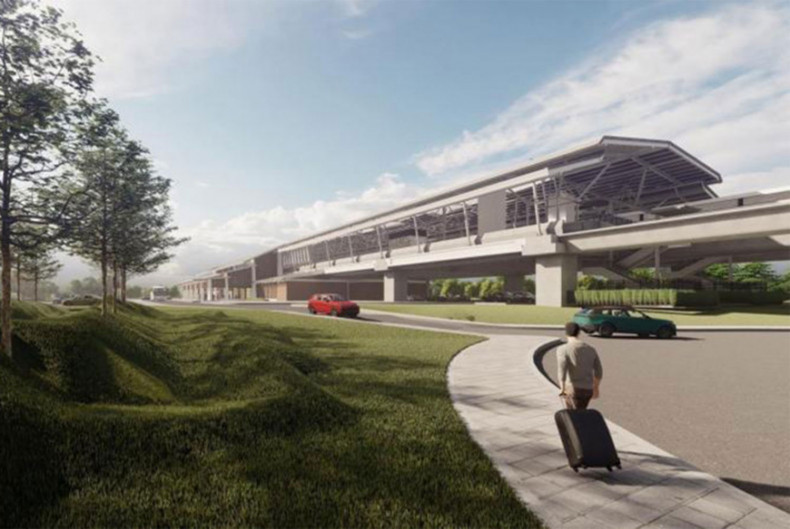
Thailand’s Three-airport rail link work ‘could start in April’
Project is five years behind schedule due to haggling over contract with CP-led consortium
Work on the long-delayed three-airport rail link could begin in April if amendments to the contract with the consortium developing it are approved, according to the Eastern Economic Corridor (EEC) Policy Committee.
A recent meeting of the committee, chaired by Deputy Prime Minister Pichai Chunhavajira, reviewed plans to amend the contract for the high-speed rail project linking Don Mueang, Suvarnabhumi and U-tapao airports.
The State Railway of Thailand (SRT) is currently drafting the amended contract, which would then be submitted to the EEC Policy Committee and the cabinet for approval.
Construction will take five years to complete, with an expected opening in 2029, five years behind schedule.
The original contract was signed in 2019 between the SRT and Asia Era One, a consortium led by the Charoen Pokphand (CP) Group. A concession agreement to operate the Airport Rail Link (ARL) in Bangkok was part of the joint investment plan.
During the Covid-19 pandemic, however, declining passenger numbers on the ARL prompted Asia Era One to request compensation. The cabinet approved the revision of the contract in 2021.
Transport Minister Suriya Jungrungreangkit has rejected opposition criticism that the contract revisions favour the private sector partners.
The SRT said last month that it was ready to take over the entire project if the contractor is unable to finish the job.
The EEC Policy Committee, meanwhile, has approved the expansion of the Eastern Aviation City project which also includes U-tapao Airport. An additional 714 rai of land under the jurisdiction of the Royal Thai Navy will be provided for the project.
The extension is aimed at accommodating a second runway to address aviation safety requirements and avoid natural obstacles north of the project area, including mountains, said Mr Pichai.
In addition, the land-use plan for the Eastern Economic Corridor of Innovation (EECi) will be revised to support activities beyond prototype development to include commercial production. Approximately 975 rai out of the 3,454 rai allotted to project will be taken up by the hub, he said.
The main targets will be the modern automotive, smart electronics and bio-agriculture industries. The changes aim to stimulate the local economy, foster technology transfer and enhance residents’ quality of life.
Another proposal approved in the meeting was Blue Tech City, a 1,172-rai special economic zone in Chachoengsao. This industrial zone will support advanced industries such as electric vehicles, smart electronics, aviation and digital technologies.
The project is expected to attract investment worth 156 billion baht and generate 20,000 jobs. Local entrepreneurs would receive support in sourcing 90% of all electronic components and auto parts that will be used for EV production in the zone from domestic businesses.
Source: https://www.bangkokpost.com/thailand/general/2941981/three-airport-rail-link-work-could-start-in-april

